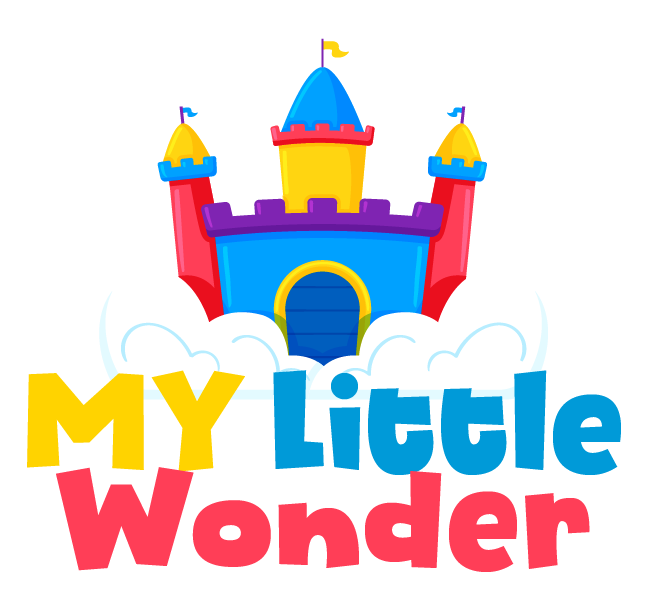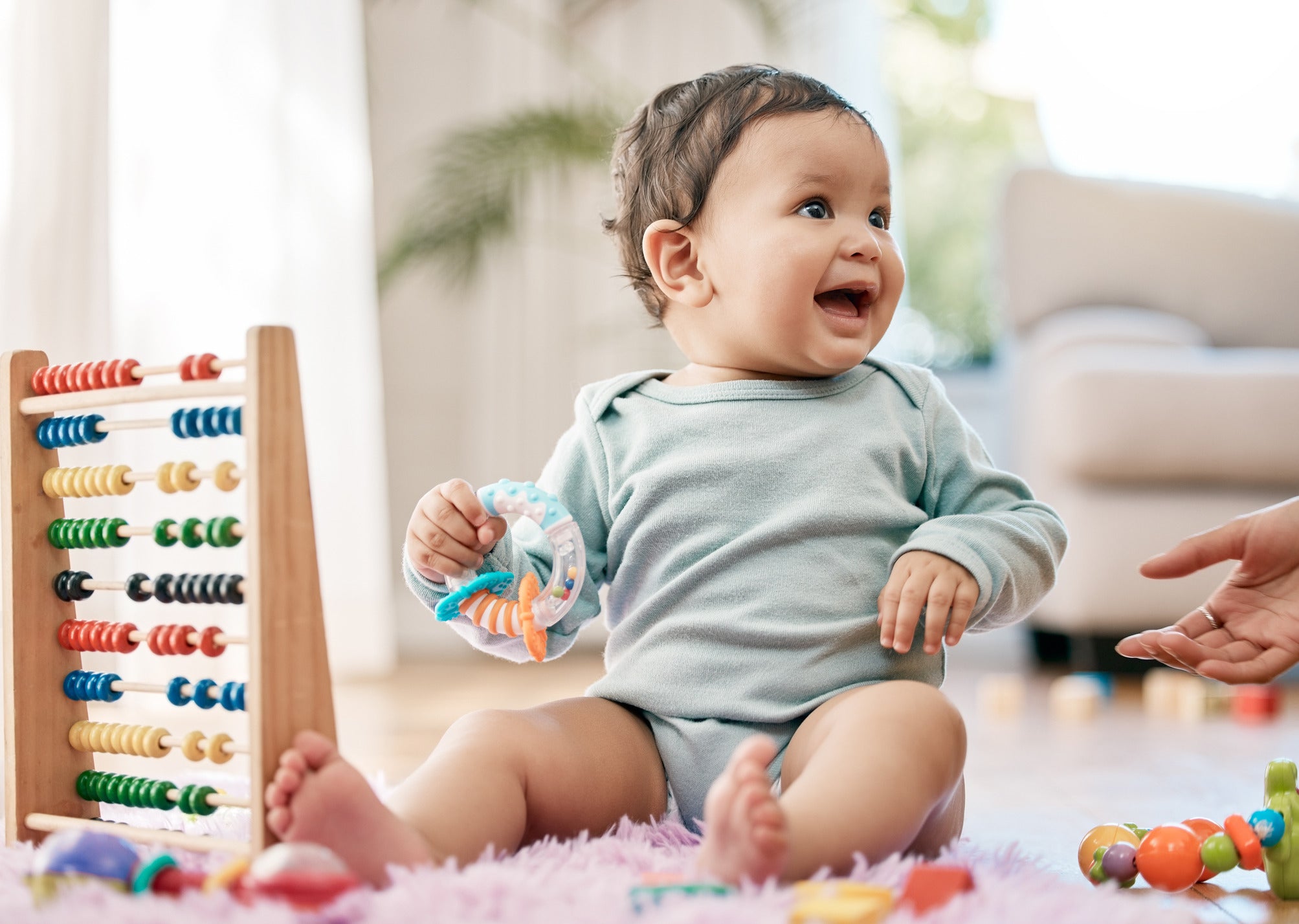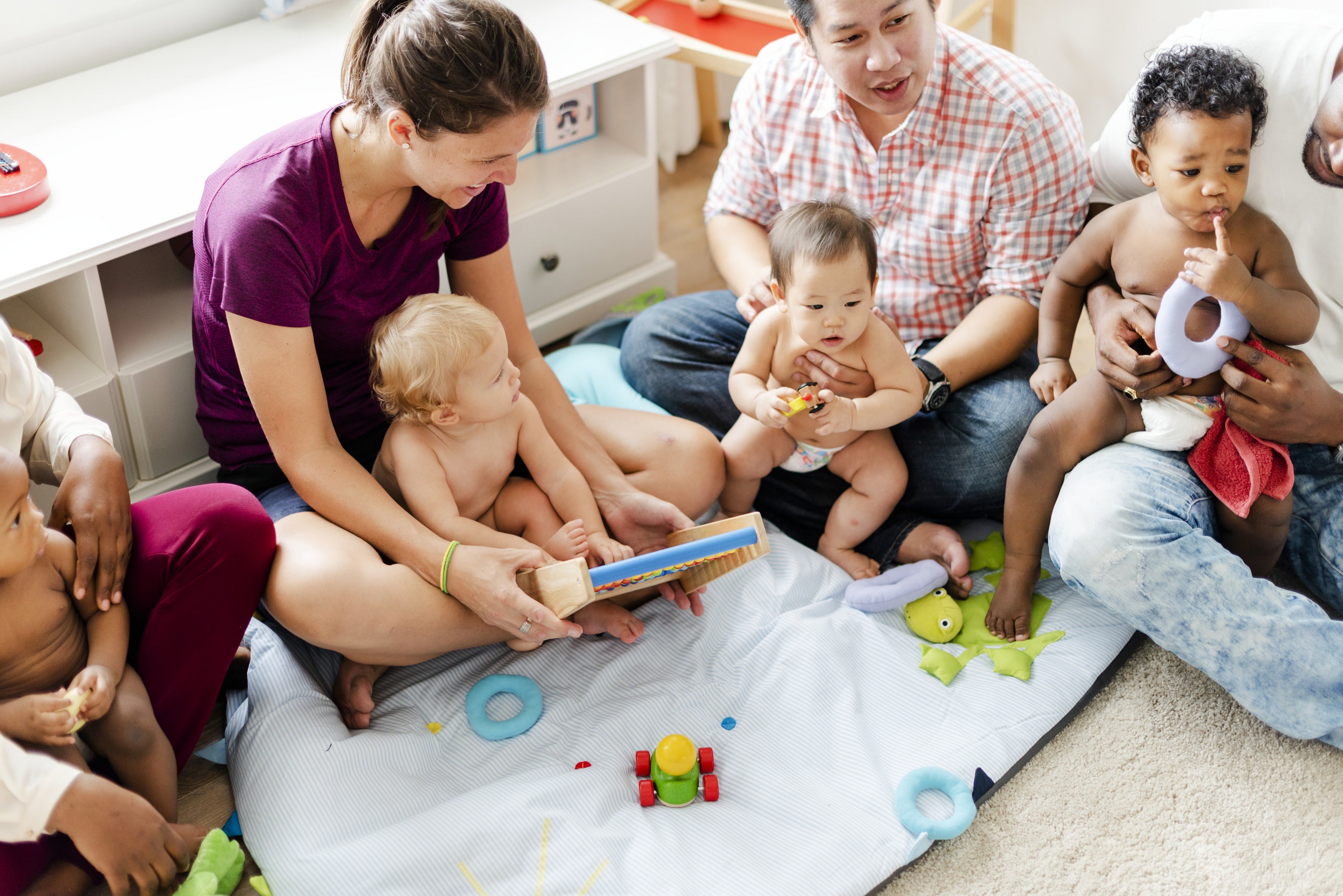Early childhood is a remarkable period filled with growth, learning, and connection. From the moment they are born, babies rely on their caregivers to nurture their cognitive, emotional, and physical development. Did you know that the foundation for lifelong learning and well-being is largely established during a child’s first few years? Engaging with your baby early on lays the groundwork for essential skills such as problem-solving, emotional regulation, and physical coordination.
This guide aims to empower parents with practical, actionable tips to support their baby’s development at every stage. With insights into play, nutrition, safety, and more, you’ll have the tools to create a thriving environment for your little one.
Interesting Facts About Baby Development
- Brain Power at Birth: A newborn’s brain has around 100 billion neurons, making it a powerhouse for learning from day one.
- Recognizing Mom: Within hours of birth, babies can identify their mother’s voice and smell—a testament to the power of bonding.
- The Science of Crawling: Crawling isn’t just about mobility; it helps coordinate the two hemispheres of the brain, supporting learning and memory.
What Are the Key Areas of Baby Development?
Your baby’s early development can be grouped into three primary areas: physical, cognitive, and emotional/social. Each plays a vital role in shaping their overall growth and well-being. By understanding these areas, you can better provide the nurturing environment your little one needs.
Physical Development
Physical development refers to the changes in your baby’s body and motor skills. These milestones are signs of growing strength, coordination, and readiness for new challenges.
Growth Milestones
- Head Control: In the first few months, babies begin to lift and control their heads during tummy time. This is a foundational skill for sitting up and crawling.
- Sitting and Crawling: By around six months, many babies can sit unsupported. Crawling usually follows, helping them explore their environment and build core strength.
- Walking: Most babies take their first steps between 9 and 15 months. This milestone signifies growing confidence and independence.
Fine and Gross Motor Skills
- Fine Motor Skills: These involve smaller movements, like grasping a toy, picking up small objects, or pointing. Encouraging activities like stacking blocks can help refine these skills.
- Gross Motor Skills: Larger movements, such as rolling, sitting, and eventually walking, fall under this category. Play mats or crawling tunnels are excellent tools to encourage physical exploration.
Cognitive Development
Cognitive development includes the growth of your baby’s brain and their ability to learn, think, and solve problems. It’s all about making connections and understanding the world.
Language Skills- From cooing and babbling to forming their first words, your baby’s journey to language acquisition is fascinating. Repeating simple words, singing songs, and reading aloud can all enhance this development. Babies also begin to associate words with objects and actions, like waving when you say “bye-bye.”
- Babies start solving problems through exploration and play. They learn cause-and-effect relationships, like realizing a button on a toy creates a sound. Interactive toys such as shape sorters or puzzles are excellent for fostering these skills.
- Around six months, babies begin to recognize familiar faces and objects. Games like peek-a-boo strengthen their understanding of object permanence—the concept that something exists even when it’s out of sight.
Emotional and Social Development
The emotional and social aspects of development help your baby form relationships and express their feelings. These skills are essential for building trust, empathy, and communication.
Attachment and Bonding- Secure attachments form when your baby feels safe and loved. Skin-to-skin contact, responding to their cries, and spending quality time together strengthen this bond. A securely attached baby is more likely to explore confidently and manage stress effectively.
- Even from an early age, babies express emotions like happiness, frustration, or fear. Helping your baby identify and navigate these feelings lays the groundwork for emotional intelligence.
- Interactions with caregivers, siblings, and peers help babies learn to share, take turns, and communicate. Attending playgroups or mommy-and-me classes provides opportunities for your baby to observe and imitate social behaviors.
How the Areas Interconnect
These developmental areas don’t operate in isolation—they are deeply interconnected. For instance:
- A baby learning to crawl (physical development) might find new objects to explore, boosting problem-solving skills (cognitive development).
- Social play with a caregiver can enhance both emotional bonding and language acquisition.

How to Encourage Physical Development
Physical development is a cornerstone of a baby’s early growth, paving the way for essential motor skills. Here’s how you can support your baby’s physical milestones:
- Tummy Time: Daily tummy time is essential for building neck, shoulder, and arm strength. Begin with a few minutes a day and gradually increase as your baby grows comfortable. This activity not only strengthens muscles but also helps prevent flat spots on the back of the head.
- Encouraging Crawling: Crawling is a major developmental milestone. Use engaging toys like the Crawling Crab Baby Toy to motivate your baby to move across the floor. This activity improves their hand-eye coordination and strengthens core muscles.
- Supporting Walking Milestones: When your baby shows signs of pulling up and cruising, introduce tools like the Baby Walking Harness. These devices provide gentle support, helping your baby gain confidence in their steps.
Pro Tip: Allowing barefoot time at home is beneficial for balance and sensory feedback. It helps babies feel the ground and develop a stronger sense of coordination.
Boosting Cognitive Development Through Play
Play is not only fun but also a powerful tool for fostering cognitive growth. Interactive and stimulating activities can spark creativity, enhance memory, and teach problem-solving.
- Peek-a-Boo and Hide-and-Seek: These timeless games help develop object permanence—the understanding that objects still exist even when out of sight. Play hide-and-seek with toys to make it even more engaging.
- Problem-Solving Toys: Toys like the Smart Educational Egg Toy are excellent for encouraging logical thinking and problem-solving skills. They challenge your baby to match shapes and colors, enhancing their analytical abilities.
- Reading Aloud: Books are an excellent way to boost language skills and comprehension. Read simple stories with vivid pictures to capture your baby’s attention. Over time, this habit builds vocabulary and fosters a love for learning.
Simple Games and Their Cognitive Benefits
| Game | Benefit |
|---|---|
| Peek-a-Boo | Develops object permanence |
| Stacking Blocks | Enhances hand-eye coordination |
| Shape Sorters | Builds problem-solving skills |
What to Do for Emotional and Social Growth
Emotional and social development is the heart of building strong, secure relationships and fostering self-confidence in your baby. Here’s how you can nurture this important area:
- Practice Skin-to-Skin Contact: From the early days, skin-to-skin contact helps your baby feel secure and loved. This simple act also regulates their temperature, heartbeat, and stress levels, strengthening the bond between you and your baby.
- Participate in Group Activities: Mommy-and-me classes are a wonderful way to expose your baby to peers and new environments. These interactions build social skills and help your baby adapt to being around others.
- Use Comforting Tools: For emotional security, incorporate soothing items like the Breathing Otter Plush Toy. This cuddly companion mimics a gentle breathing motion, offering comfort during naps or moments of distress.
Pro Tip: Narrate daily activities to your baby, such as describing what you’re cooking or pointing out objects during a walk. This not only boosts language skills but also makes your baby feel included and connected.
Ensuring a Safe and Stimulating Environment
A safe and engaging space allows your baby to explore and learn without unnecessary risks. Here are some essential tips:
- Baby-Proof Your Home: Secure furniture, cover sharp edges, and use baby gates to prevent access to unsafe areas. Consider products like the Baby Safety Head Protection for added safety during their early walking phase.
- Rotate Toys: Rotating toys keeps your baby’s environment fresh and engaging, reducing boredom and encouraging exploration.
- Create a Sensory Corner: Set up a dedicated space with textured blankets, colorful objects, and sensory toys. This promotes tactile, visual, and auditory stimulation, making learning both fun and effective.
How Important Is Nutrition for Development?
Proper nutrition is a key pillar of your baby’s growth, fueling both their body and brain development.
- Breastfeeding and Formula: Breastmilk is often considered the gold standard for infant nutrition, providing antibodies and nutrients. If breastfeeding isn’t an option, high-quality formula is a great alternative.
- Introducing Solids: Around six months, introduce solids with tools like the Baby Silicone Dinner Set. Start with pureed fruits and vegetables, and gradually move to more textured foods as your baby’s chewing skills develop.
- Age-Appropriate Finger Foods: Offer small, soft foods like banana slices or steamed vegetables to encourage fine motor skills as your baby learns to self-feed.

How Can Sleep Affect Baby Growth?
Sleep is a vital component of your baby’s development. It supports brain growth, memory consolidation, and physical recovery. Establishing healthy sleep habits early can have long-term benefits for your child.
- The Importance of Sleep: Newborns require 14-17 hours of sleep daily, while older babies may need 12-15 hours. Naps play a significant role in helping babies recharge and process their experiences.
- Soothing Aids: Tools like the Schlummer Otter Sleep Baby Toy can create a calming environment for better sleep. These toys often include gentle vibrations or soothing sounds to help your baby relax.
- Creating a Bedtime Routine: A consistent bedtime routine, such as a warm bath followed by a story, signals to your baby that it’s time to wind down. Over time, this predictability helps them fall asleep more easily.
The Role of Play in Early Learning
Play is one of the most effective ways to help your baby develop a range of skills. It nurtures creativity, boosts social connections, and encourages sensory exploration.
- Sensory Play: Encourage your baby’s senses with toys like the Sensory Baby UFO Toy. These toys often feature multiple textures, colors, and sounds that captivate your baby’s attention and promote sensory integration.
- Music and Singing: Singing nursery rhymes or playing simple tunes helps with auditory development. It also builds a connection between you and your baby as they associate the sound of your voice with comfort and joy.
- Pretend Play: As your baby grows, engaging in pretend play fosters imagination and social skills. Simple activities like hosting a “tea party” with plush toys teach your baby about empathy and interaction.
Developmental Milestones at a Glance
| Age Range | Physical | Cognitive | Emotional/Social |
|---|---|---|---|
| 0-3 Months | Lifts head briefly | Tracks objects | Smiles at faces |
| 4-6 Months | Rolls over | Recognizes people | Laughs aloud |
| 7-12 Months | Crawls, pulls to stand | Says first words | Shows attachment |
What Should Parents Avoid?
While it’s important to actively support your baby’s growth, there are some common pitfalls to avoid:
Overusing Screen Time- For babies under 18 months, excessive screen time can hinder development. Focus on interactive play and face-to-face engagement instead.
- Each baby is unique, and comparing their progress to others can create unnecessary stress. Trust that your baby will develop at their own pace.
- Babies need rest periods to process what they’ve learned. Overloading their environment with constant activity can lead to fatigue and fussiness.
FAQs
How much tummy time does my baby need daily?
Start with 2-3 minutes a few times a day and gradually increase as your baby grows stronger.
When should I start introducing toys?
As early as the first few weeks, simple black-and-white toys can capture your baby’s attention.
Is it normal for my baby to skip crawling?
Yes, some babies move straight to walking. Focus on supporting their current developmental stage.
How can I help my baby sleep better?
Establish a consistent bedtime routine and consider soothing aids like soft music or sleep toys.
What’s the best way to encourage talking?
Narrate your activities, read aloud, and respond to your baby’s coos and babbles.
Should I worry if my baby isn’t meeting milestones?
While most babies develop on their own timeline, consult your pediatrician if you have concerns.
Can diet affect my baby’s development?
Absolutely. A balanced diet provides the nutrients essential for brain and physical growth.
When is it okay to use a walking aid?
Once your baby shows readiness for standing and walking, a walking harness can offer support.
How do I balance play and learning time?
Incorporate learning into play. Babies absorb knowledge best when they’re having fun.
What if my baby seems uninterested in toys?
Rotate toys and experiment with different textures, sounds, and colors to spark interest.




Leave a comment
This site is protected by hCaptcha and the hCaptcha Privacy Policy and Terms of Service apply.